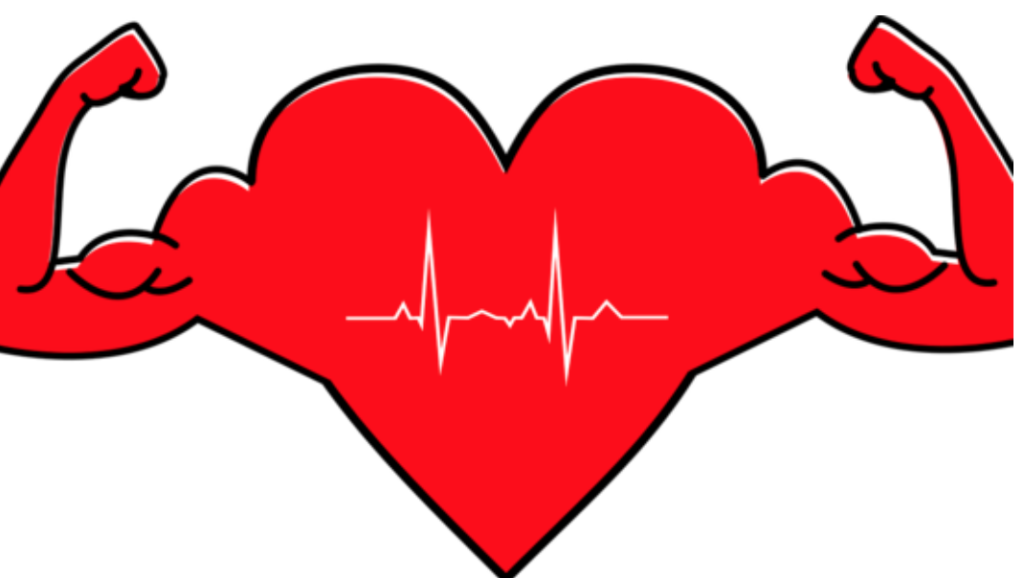Anger is a complex emotion that can manifest in a variety of ways, from mild irritation to explosive outbursts. While it is a normal human emotion, uncontrolled anger can have detrimental effects on one’s health and relationships. Therefore, it is crucial to understand what anger is and how to manage it effectively.
Emotional management therapy is a type of counseling that helps individuals identify their triggers, manage their emotions, and develop healthy coping strategies. This therapy can be helpful for those struggling with anger management, as it provides tools and techniques to regulate their emotions and communicate their needs effectively.
This article will explore the nature of anger, its causes and triggers, different types of anger, and the effects of uncontrolled anger. Additionally, it will delve into healthy anger management, emotional regulation techniques, and how counseling and therapy, particularly at Family Life Psychology & Wellness in Edmonton, Alberta, can help individuals, couples, and families prioritize their mental health.
Understanding Anger
Anger is a complex emotion that can arise from a variety of factors, including feelings of frustration, being wronged, insulted, or let down, as well as psychological or medical issues. It is a natural human emotion that triggers physiological responses, including increased heart rate, blood pressure, and adrenaline release.
Anger can be destructive when not managed properly, and understanding the nuances of this emotion is crucial in emotional management therapy. Emotional intelligence is key to managing anger in relationships and the workplace.
Self-care techniques, such as cognitive restructuring and mindfulness practices, can help individuals cope with anger in a positive way. In addition, learning healthy coping skills is crucial in managing anger and avoiding the potential for addiction.
In emotional management therapy, individuals learn to identify their anger triggers, understand the physiological and emotional responses associated with anger, and develop strategies to manage their emotions in a healthy and productive way.
Causes and Triggers
Various factors, such as feelings of frustration, being wronged, insulted, or let down can trigger intense emotional responses. Common triggers of anger can include childhood experiences, relationship issues, work-related stress, financial problems, substance abuse, cultural influences, trauma history, environmental factors, and cognitive distortions.
Childhood experiences such as abuse or neglect can lead to deep-seated anger issues that may persist into adulthood. Relationship problems, whether with family, friends, or romantic partners, can also trigger anger. Work-related stress, such as job loss or a difficult boss, can cause feelings of frustration and anger. Financial problems, such as debt or poverty, can also be a source of anger and stress. Substance abuse can exacerbate anger issues and cause intense emotional responses.
Cultural influences and environmental factors can also play a role in triggering anger. For example, cultural norms around gender and race may contribute to feelings of anger and frustration. Trauma history, such as experiencing violence or abuse, can lead to anger issues. Cognitive distortions, such as black-and-white thinking or catastrophizing, can also contribute to feelings of anger.
Understanding the underlying causes and triggers of anger is an important aspect of emotional management therapy. By identifying and addressing these issues, individuals can learn to manage their emotions in a healthy and productive way.
Types of Anger
There are different types of anger, and they can be expressed in various ways. Passive aggression involves concealing anger and pretending that everything is okay, while open aggression involves lashing out physically or verbally.
Assertive anger is a healthier way of expressing anger, as it involves remaining in control and communicating emotions confidently and respectfully.
Cognitive therapy, coping mechanisms, expressive therapy, behavioral techniques, mindfulness practices, group therapy, and family dynamics can be useful in managing anger. Workplace anger can be handled through communication, conflict resolution, and stress management.
Gender differences can also influence the way that anger is expressed, with men being more likely to express anger through physical aggression, while women may show it through passive aggression. Emotional management therapy can help individuals identify the triggers of their anger and learn how to manage and express it in a healthy way.
Effects of Uncontrolled Anger
Uncontrolled anger can have detrimental effects on one’s physical and mental health, as well as their relationships with others. Here are some of the most significant consequences of uncontrolled anger:
- Physical consequences: Uncontrolled anger can lead to high blood pressure, heart disease, and other physical ailments. It can also cause headaches, digestive issues, and chronic pain.
- Relationship damage: Uncontrolled anger can cause irreparable damage to personal relationships. It can lead to arguments, physical violence, and emotional abuse. It can also cause family members and friends to distance themselves from the person with the anger issues.
- Legal trouble: Uncontrolled anger can lead to legal trouble, especially if it results in physical violence or property damage.
- Workplace problems: Uncontrolled anger can lead to job loss, disciplinary action, and difficulties in the workplace. It can also create tension between coworkers and damage team dynamics.
It is crucial to seek help for uncontrolled anger before it leads to more significant consequences. Therapy can help individuals learn to control their emotions, communicate effectively, and manage stress in healthy ways.
Healthy Anger Management
Effective management of anger involves learning healthy coping mechanisms, practicing assertive communication, and focusing on stress reduction. Individuals can use a combination of techniques to manage their emotions, including breathing exercises, mindful meditation, cognitive restructuring, positive affirmations, time management, stress reduction, self-care, communication skills, problem-solving techniques, and relaxation techniques. These techniques help individuals to identify the root cause of their anger, control their emotions, and express their feelings in a healthy and constructive way.
One of the most important aspects of anger management therapy is teaching individuals how to recognize their triggers and develop strategies for preventing or managing them. This involves identifying situations that tend to provoke anger, such as conflicts with coworkers or family members, and developing alternative responses to these situations. For instance, instead of responding with aggression or passive-aggressive behavior, individuals can learn to use assertive communication to express their feelings in a calm and respectful manner. Additionally, individuals can use relaxation techniques such as deep breathing, progressive muscle relaxation, or visualization to calm themselves down and reduce their stress levels. Through these techniques, individuals can learn to manage their anger in a healthy and constructive way, improving their relationships and overall well-being.
| Healthy Coping Mechanisms | Unhealthy Coping Mechanisms |
|---|---|
| Breathing exercises | Substance abuse |
| Mindful meditation | Physical violence |
| Cognitive restructuring | Passive aggression |
| Positive affirmations | Verbal abuse |
Emotional Regulation Techniques
Developing emotional regulation techniques is crucial for individuals to manage their feelings in a healthy and constructive manner, ultimately leading to improved mental health and relationships.
There are various techniques that can be used to regulate emotions, such as breathing exercises, mindfulness techniques, cognitive distortion, self-soothing strategies, grounding techniques, progressive muscle relaxation, positive self-talk, visualization exercises, coping mechanisms, and distraction techniques.
Breathing exercises involve taking deep breaths, focusing on the inhalation and exhalation, which can help reduce feelings of anxiety and stress.
Mindfulness techniques involve being present in the moment, focusing on one’s sensations and thoughts without judgment.
Cognitive distortion techniques involve challenging irrational thoughts and replacing them with more positive and realistic ones.
Self-soothing strategies involve comforting oneself with things like a warm blanket, a favorite book, or a favorite song.
Grounding techniques involve connecting with one’s surroundings by focusing on the sights, sounds, smells, and textures around them.
Progressive muscle relaxation involves tensing and relaxing different muscle groups to reduce feelings of physical tension.
Positive self-talk involves replacing negative self-talk with positive affirmations.
Visualization exercises involve imagining a calm and peaceful scenario to reduce feelings of anxiety and stress.
Coping mechanisms involve finding healthy ways to deal with difficult emotions, such as exercising, journaling, or talking to a trusted friend.
Distraction techniques involve finding a healthy distraction, like watching a movie or reading a book, to take one’s mind off of negative thoughts and emotions.
By implementing these techniques, individuals can learn to manage their emotions in a healthy and constructive manner, leading to improved mental health and relationships.
Counseling and Therapy
Counseling and therapy can provide individuals with the necessary tools and support to address and overcome challenges related to their mental health and well-being.
When it comes to anger management, counseling can help individuals develop coping strategies, therapeutic techniques, emotional intelligence, communication skills, stress management, mindfulness practice, cognitive behavior, relaxation techniques, self-awareness, and personal growth.
The goal of anger management therapy is to help individuals learn how to express their emotions in a healthy and productive way, rather than lashing out with open aggression or bottling up their feelings with passive aggression.
Anger management counseling can also help individuals identify the root causes of their anger, whether it be related to past traumas, current stressors, or underlying mental health conditions.
By exploring these underlying issues, individuals can begin to understand their triggers and learn how to manage their emotions more effectively.
Additionally, counseling can provide a safe and supportive environment for individuals to practice new skills, such as assertive communication and relaxation techniques.
With time and practice, individuals can learn how to channel their anger in a healthy and productive way, leading to improved relationships and overall well-being.
Family Life Psychology & Wellness
Moving on from the previous subtopic on counseling and therapy, it is important to highlight the services of Family Life Psychology & Wellness. This organization offers a holistic approach to mental health and emotional wellness, utilizing evidence-based therapy and professional counseling to help individuals, couples, and families achieve their health goals.
Family Life Psychology & Wellness recognizes that emotional management is essential to maintaining a healthy and fulfilling life, and offers a range of techniques to help clients achieve this. One of the techniques utilized by Family Life Psychology & Wellness is cognitive behavioral therapy. This is a type of therapy that helps individuals identify and change negative thought patterns and behaviors.
Additionally, relaxation exercises and mindfulness practices are included in the therapy program to help clients develop coping strategies and reduce stress levels. Communication skills and relationship building are also emphasized to help clients develop healthy and positive relationships with others.
Using a combination of these techniques, Family Life Psychology & Wellness provides a comprehensive and personalized approach to emotional management, helping clients to achieve optimal mental health and wellbeing.
Conclusion
Anger is a natural human emotion that can lead to physical and verbal abuse when not dealt with properly. Family Life Psychology & Wellness offers anger management therapy in Edmonton, Alberta, to help individuals learn how to control their emotions and express their anger in a healthy and productive way.
In this article, we explored what anger is and how emotional management therapy can help individuals, couples, and families make their health a priority. We also delved into the different types of anger and how to channel it productively.
Understanding the root causes and triggers of anger is crucial in managing this emotion. By recognizing and acknowledging these triggers, individuals can learn to control their responses and develop healthy communication skills. It is essential to channel anger productively by using techniques such as deep breathing, mindfulness, and physical exercise. These techniques can help individuals regulate their emotions and reduce the likelihood of outbursts.
Emotional regulation techniques are beneficial, but for those who struggle with anger management, counseling and therapy can be a more effective option. Family Life Psychology & Wellness provides specialized therapy sessions to help individuals, couples, and families work through their anger and develop healthy coping mechanisms.
By seeking help and support, individuals can take steps towards a healthier and happier life. In conclusion, anger is a natural human emotion that can have detrimental effects when not managed properly. Emotional management therapy can help individuals, couples, and families develop healthy coping mechanisms and communication skills to regulate their emotions and lead a productive and fulfilling life. Family Life Psychology & Wellness offers specialized anger management therapy to help individuals navigate their emotions and work towards a happier and healthier future.






